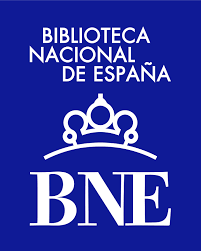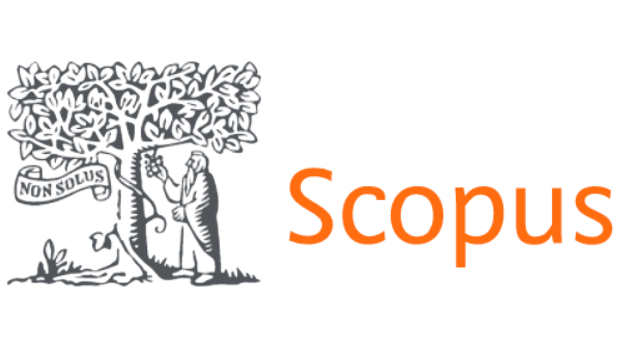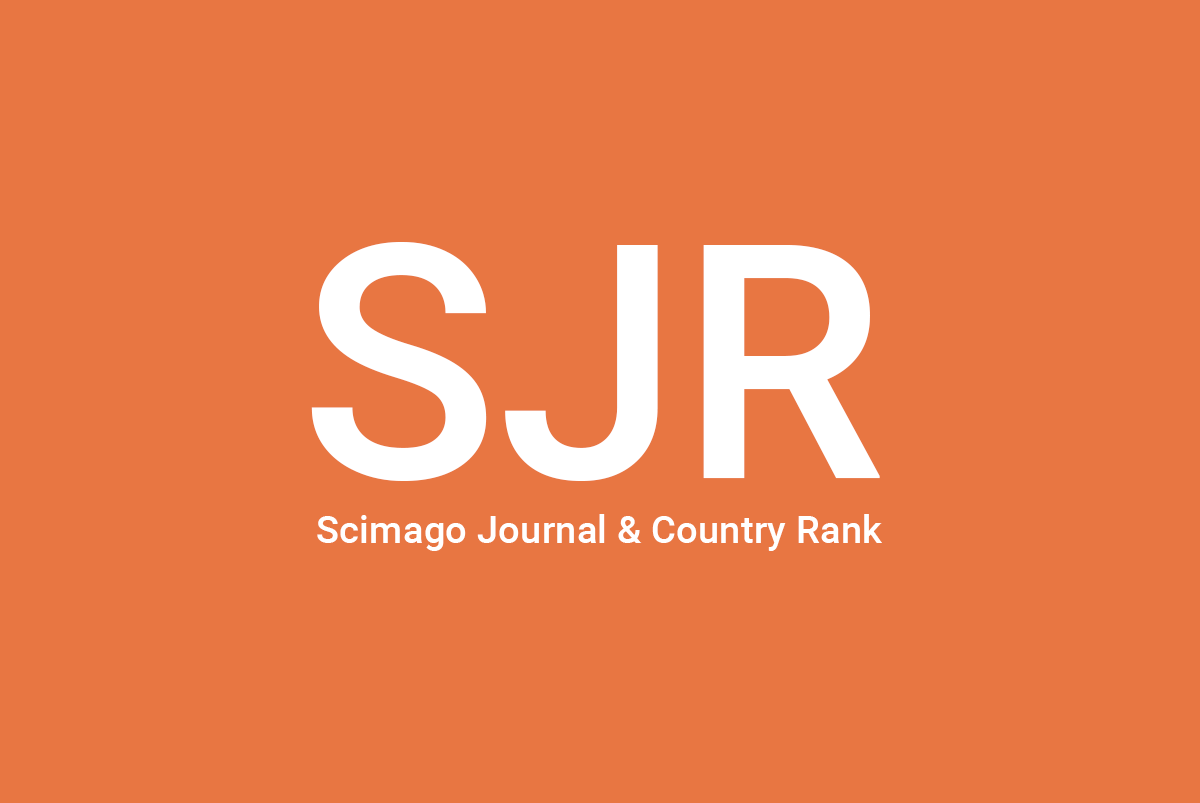Freedom is Fatalism. Notes about two Shots from a Pistol
DOI:
https://doi.org/10.24310/Studiahegelianastheg.v6i.11429Keywords:
HEGEL, FICHTE, HERBART, FREEDOM, IDEALISM, SCIENCEAbstract
Among the critical remarks addressed by Johann F. Herbart to Johann G. Fichte, one of the most interesting is the observation that transcendental freedom is nothing more than fatalism. In this paper, this argument will be related with the new concept of scientific method proposed by Georg W. F. Hegel with the aim to question whether also Hegel’s own method does imply another form of fatalism.
Downloads
Metrics
Publication Facts
Reviewer profiles N/A
Author statements
Indexed in
-
—
- Academic society
- N/A
- Publisher
- Universidad de Málaga
References
Belluci, F. 2015: «Logic, Psychology, and Apperception: Charles S. Peirce and Johann F. Herbart», Journal of the History of Ideas 76, pp. 69-91.
Burbidge, J. W. 1996: “Hegel’s Conception of Logic”, en F.C. Beiser (ed.), The Cambridge Companion to Hegel, Cambridge: Cambridge University Press, pp.
86-101.
Capitán Díaz, A. 1984: Historia del pensamiento pedagógico en Europa. Desde sus orígenes al precientifismo pedagógico de J. F. Herbart, Madrid: Dykinson, pp.
769-791.
Cardani, M. 2017: Forma y contenido. Una interpretación del idealismo británico, Tesis Doctoral, Universitat de Barcelona.
Cardani, M. 2018: «The Oxford Handbook of Hegel. Dean Moyar (ed.). Oxford University Press: Oxford, UK, 2017; 880 pp.; ISBN: 9780199355228», Philosophies
3: 4.
Cassirer, E. 1993: Das Erkenntnisproblem in der Philosphie und Wissenschaft der neueren Zeit, tr. W. Roces, El problema del conocimiento en la filosofía y en
la ciencia modernas, México D. F.: Fondo de Cultura Económica, vol. 3: Los sistemas postkantianos.
Cassirer, E. 2000: Substanzbegriff und Funktionsbegriff. Untersuchungen über die Grundfragen der Erkenntniskritik, en: E. Cassirer, Gesammelte Werke, Hamburger Ausgabe, Hrsg. von B. Recki, 26 Bände, Hamburg: Meiner, 1998- 2009, Band 6, Text und Anm. Bearbeitet von R. Schmücker.
Cruz, J. 1994: Conciencia y absoluto en Fichte, Pamplona: Cuadernos de anuario filosófico de la Universidad de Navarra.
Cuartango, R. G. 1999: Una nada que puede ser todo. Reflexividad en la Ciencia de la lógica de Hegel, Santander: editoriaLímite.
Di Giovanni, G. 2010: “Introduction”, en: G. W. F. Hegel, The Science of Logic, tr. G. di Giovanni. Cambridge: Cambridge University Press, pp. XI-LXII.
Duque, F. 2012: “La logique de la liberté, c’est la liberté du logique”, en: J. F. Kervégan y B. Mabille (eds.), Hegel au présent. Une relève de la métaphysique?, Paris : CNRS Éditions, pp. 81-91.
Ferraguto, F. 2009: “L’elevazione al punto di vista trascendentale nella Wissenschaftslehre di J.G. Fichte. Aspetti metodologici e questioni sistematiche”, en: A. Bertinetto (ed.), Leggere Fichte, Napoli: Istituto Italiano per gli Studi Filosofici, pp. 87-111.
Ferrari, F. 2015: “Cassirer and the philosophy of science”, en: N. de Warren y A. Staiti (eds.), New Approaches to Neo-Kantianism, Cambridge: Cambridge University
Press, pp. 261–284.
Fichte, J. G. BM: Die Bestimmung des Menschen, tr. cast. E. Ovejero y J. Gaos, El destino del hombre. Introducciones a la teoría de la ciencia, Prólogo de F. Jodl, México D. F.:Porrúa, 1994, pp. 1-112.
Fichte, J. G. RdN: Reden an die deutsche Nation, Estudio preliminar y tr. M.ª Jesús
Varela y Luis A. Acosta, Discursos a la nación alemana, Madrid: Tecnos, 1988.
Fichte, J. G. WLnm: Wissenschaftslehre nova método, tr. J. L. Villacañas y M. Ramos, Doctrina de la Ciencia nova methodo, Valencia: Natán, 1987.
Friedman, M. 2000: A Parting of the Ways: Carnap, Cassirer, and Heidegger, Chicago: Open Court.
Fries, F. J. 1982: “Nichtigkeit der Hegelschen Dialektik”, en: F. J. Fries, Sämtlichen Schriften, hrsg. von G. König und L. Geldsetzer, Aalen: Scientia, XXIV, pp. 758–781.
Hegel, G. W. F. Diff: Differenz des Fichtes’schen und Schelling’schen Systems der Philosophie, tr. J. A. Rodríguez Tous, Diferencia entre el sistema de filosofía de Fichte y el de Schelling, Madrid: Alianza, 1989.
Hegel, G. W. F. Enz: Enzyklopaedie der philosophischen Wissenschaften im Grundrisse, tr. R. Valls Plana, Enciclopedia de las ciencias filosóficas, Madrid:
Alianza, 1997.
Hegel, G. W. F. Phän: Phänomenologie des Geistes, tr. M. Jiménez Redondo, Fenomenología del espíritu, Valencia: Pre-Textos, 2006.
Hegel, G. W. F. WL: Wissenschaft der Logik, tr. A. Mondolfo y R. Mondolfo, Ciencia de la lógica, 2 Vols., Buenos Aires: Solar, 1982.
Herbart, J. F. 1914: Allgemeine Pädagogik, aus dem Zweck der Erziehung abgeleitet, tr. L. Luzuriaga, Pedagogía general derivada del fin de la educación, Prólogo de J. Ortega y Gasset, Madrid: Ediciones de la Lectura.
Herbart, J. F. 1964a: Allgemeine Metaphysik, en J. F. Herbart, Sämtliche Werke. In chronologischer Reihenfolge, hrsg. von K. Kehrbach und O. Flügel, Neudruck der Ausgabe Langensanza 1893, Aalen: Scientia, VIII.
Herbart, J. F. 1964b: “Rezension von G.W.F. Hegel, Encyklopädie der philosophischen Wissenschaften im Grundrisse”, en: J. F. Herbart, Sämtliche Werke. In chronologischer Reihenfolge, hrsg. von K. Kehrbach und O. Flügel, Neudruck der Ausgabe Langensanza 1893, Aalen: Scientia, XIII, pp. 198-216.
Hoeltzel, S. 2014: “Nonepistemic Justification and Practical Postulation in Fichte”, en: T. Rockmore, D. Breazeale D. (eds), Fichte and Transcendental Philosophy, London: Palgrave Macmillan.
Ivaldo, M. 2019: «El estatuto de la filosofía de la religión en la Exhortación a la vida bienaventurada», Argumenta Philosophica 1, pp. 71-84.
Kant, I. KrV: Kritik der reinen Vernunft, tr. P. Ribas, Crítica de la razón pura, Madrid: Taurus, 2013.
Kervégan, J. F. 2017: “La liberté du concept”, comunicación presentada en el VI Congreso Internacional de la Sociedad Española de Estudios sobre Hegel, Universidad de Málaga, 18-20 septiembre de 2017.
Kühn M. 2010: “Interpreting Kant Correctly: On the Kant of the Neo-Kantians”, en: R. A. Makkreel y S. Luft (eds.), Neo-Kantianism in Contemporary Philosophy,
Bloomington: Indiana University Press, pp. 113-131.
Luft, S. 2006: “A Hermeneutic Phenomenology of Subjective and Objective Spirit: Husserl, Natorp, and Cassirer”, en: B. Hopkins y S. Crowell (eds.), The New
Yearbook for Phenomenology and Phenomenological Philosophy, Albington: Routledge, pp. 209-248.
Luft, S. 2010: “Reconstruction and Reduction: Natorp and Husserl on Method and the Question of Subjectivity”, en: R. A. Makkreel y S. Luft (eds.), Neo-Kantianism in Contemporary Philosophy, Bloomington: Indiana University Press, pp. 59-91.
Mander, W.J. 2011: British Idealism. A History, Oxford: Oxford University Press.
Moyar, D. 2017: “ Absolute K nowledge a nd t he E thical C onclusion o f t he Phenomenology”, en: D. Moyar (ed.), The Oxford Handbook of Hegel, Oxford:
Oxford University Press, pp. 339-195.
Natorp, P. 1910: Die logischen Grundlagen der exakten Wissenschaften, Leipzig; Berlin: Teubner.
Natorp P. 1912: «Kant und die Marburger Schule», Kant Studien 17, pp. 193-221.
Niel, L. 2014: «Antipsicologismo y platonismo en el siglo XIX: Herbart, Bolzano y Lotze», Revista de Filosofía 39, pp. 95-118
Nuzzo, A. 2017: “Hegel’s Encyclopedia of the Philosophical Sciences in Outline”, en: D. Moyar (ed.), The Oxford Handbook of Hegel, Oxford: Oxford University Press, pp. 166-362.
Ortega y Gasset, J. 1914: “Prólogo”, en: J. F. Herbart, Allgemeine Pädagogik, aus dem Zweck der Erziehung abgeleitet, tr. L. Luzuriaga, Pedagogía general derivada del fin de la educación, Madrid: Ediciones de la Lectura, pp. 7-53.
Pareyson, L. 1976: Il sistema della libertà, Milano: Mursia.
Pettoello, R. 1986: Idealismo e realismo. La formazione filosofica di J. F. Herbart, Firenze: La Nuova Italia.
Pettoello, R. 1988: Introduzione a Herbart, Roma-Bari: Laterza.
Pettoello, R. 2000: «Scatole quadrangolari e recipienti vuoti. Genesi psicologica delle categorie e forme dell’esperienza nella critica di Herbart a Kant», Rivista di storia della filosofia 55, pp. 5-25.
Pettoello, R. 2004: “Introduzione”, en: A. Trendelenburg, Geschichte der
Kategorienlehre. Die Kategorienlehre in der Geschichte der Philosophie. Überblick und Beurtheilung, tr. R. Pettoello, La Dottrina delle Categorie nella Storia della Filosofia, Milano: Polimetrica, pp. 9-26.
Rühle, V. 2010: “El prólogo de Hegel a la Fenomenología del espíritu”, en: F. Duque (ed.), Hegel. La Odisea del Espíritu (1807- 2007), Madrid: Ediciones Pensamiento, pp. 15-34.
Sandkaulen, B. 2017: “Hegel’s First System Program and the Task of Philosophy”, en: D. Moyar (ed.), The Oxford Handbook of Hegel, Oxford: Oxford University Press, pp. 3–30.
Taylor, C. 1975: Hegel, Cambridge: Cambridge University Press.
Trendelenburg, A. 1870: Logische Untersuchungen, Leipzig: Hirzel.
Turró, S. 2011: Fichte. De la consciència a l’absolut, Badalona: Editorial Òmicron.
Virone, G. M. 2016: “Infinite Given Magnitudes: Kant’s Space and Time”, en: M. Anacker y N. Moro (eds.), Limits of Knowledge. The Nineteenth-Century Epistemological Debate and Beyond, Milano: Mimesis.
Von Hartmann, E. 1868: Ueber Die Dialektische Methode. Historisch-Kritische Untersuchungen, Berlin: Carl Duncker’s Verlag.
Zammitto, J. H. 2017: The Gestation of German Biology: Philosophy and Physiology from Stahl to Schelling, Chicago, London: The University of Chicago Press.
Downloads
Published
How to Cite
Issue
Section
License
This journal provides immediate free access to its content under the principle of making research freely available to the public. All contents published in Studia Hegeliana. Journal of the Spanish Society for Hegelian Studies, are subject to the Creative Commons Attribution-NonCommercial-ShareAlike 4.0 licence (specifically, CC-by-nc-sa), the full text of which can be found at <http://creativecommons.org/licenses/by-nc-sa/4.0>. Derivative works are therefore permitted as long as they are not used for commercial purposes. The original work may not be used for commercial purposes. The journal is not responsible for the opinions expressed by the authors of the works published in it.
It is the authors' responsibility to obtain the necessary permissions for images that are subject to copyright.
Authors whose contributions are accepted for publication in this journal retain the copyright. It is non-exclusive right to use their contributions for scholarly, research and educational purposes, including self-archiving or deposit in open access repositories of any kind.
Since volume 7 of 2021 the journal Studia Hegeliana has changed the copyright. Since that year the authors have retained the copyright.
The electronic edition of this journal is published by the Editorial de la Universidad de Málaga (UmaEditorial), being necessary to cite the source in any partial or total reproduction.

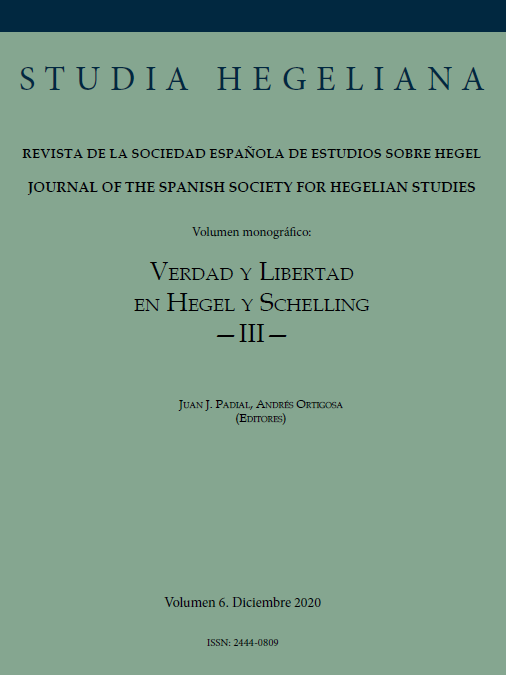




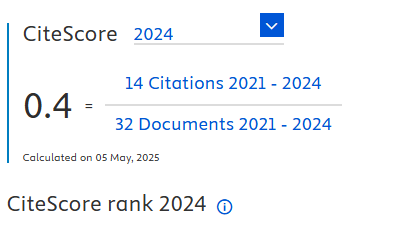
244.png)











